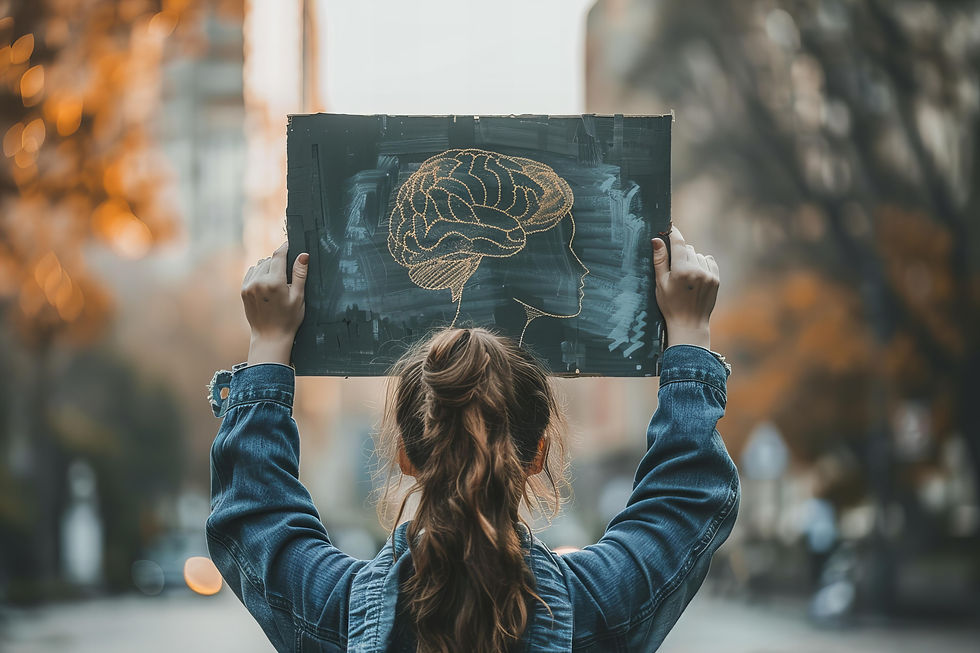Neuroscience in the News
- Dr. CK Bray

- Jan 14, 2021
- 2 min read

Happy New Year! As we begin a new year, one of my resolutions is to increase my knowledge of all the fascinating recently released research conducted on brain topics important to us. Once a month, I will share research and insights from rigorous peer-reviewed research to fun off-the-wall research. (Hey, we can’t be serious all of the time!) I hope you enjoy keeping up to date on the science.
1. A New Experimental Drug Reverses Age-Related Cognitive Decline Within Days
New research released December 10th, 2020, from the University of California at San Francisco shows that a few doses of an experimental drug can reverse age-related declines in memory and mental flexibility. The experimental drug is currently only being studied in mice. Still, the drug, called ESRIB, has already been shown in laboratory studies to restore memory function months after traumatic brain injury (TBI) and reverses cognitive impairments in Down Syndrome, prevents noise-related hearing loss, and fights certain types of prostate cancer. The fascinating insight to notice is the decline occurred within days. “Small molecule cognitive enhancer reverses age-related memory decline in mice” by Susanna Rosi et al. eLife 2. A new compound related to psychedelic Ibogaine could treat addiction and depression. I often get asked about the research with Psychedelics in relation to addiction and depression. While initial findings show almost unbelievable results, more research on long-term effects and protocols are needed. On December 9th, 2020, researchers at UC Davis published new research on the “Schedule 1” controlled substance Ibogaine. Creating a synthetic analog of ibogaine, which retained therapeutic properties with the undesired side effect of the psychedelic compound, showed that the new drug has promising positive outcomes concerning depression and anxiety. But hang on before you search out this treatment, as research is currently only being done on rats. If you want to learn more about psychedelic treatment in addictions, depression, and anxiety, you can read the news program 60 minutes report here. “A non-hallucinogenic psychedelic analogue with therapeutic potential” by Lindsay P. Cameron, Robert J. Tombari 3. Melatonin May Boost Long Term Memory Melatonin is known to promote healthy sleep, but new research coming from Tokyo Medical and Dental University in Japan showed that melatonin and its metabolites also promote the formation of long-term memories in mice and protect against cognitive decline. “The melatonin metabolite N1‐acetyl‐5‐methoxykynuramine facilitates long‐term object memory in young and aging mice” by Atsuhiko Hattori et al. Journal of Pineal Research
LEARN MORE FROM THE PODCAST




Comments